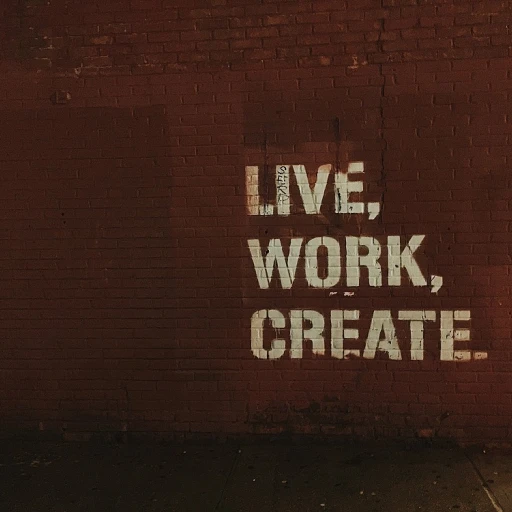
Understanding why leadership questions matter in interviews
Why Leadership Questions Are Central in HR Interviews
Leadership interview questions are a core part of the HR interview process because they reveal much more than just your ability to manage a team. These questions help interviewers understand your leadership style, your approach to project management, and how you handle real-world challenges in the work environment. When you answer leadership questions, you are not just talking about your past roles — you are demonstrating your candidate ability to lead a team, set goals, and foster open communication among team members.
Employers want to know how you respond to situations that require decision making, problem solving, and effective communication. For example, you might be asked to describe a time when you had to motivate a team member or resolve a conflict within your team. Your response gives insight into your leadership skills and your potential fit for leadership roles within their organization.
- Leadership skills are essential for driving projects forward and achieving team goals.
- Interviewers question your experience to see how you handle responsibility and adapt your leadership style to different team dynamics.
- Sharing a clear example of a project or a time you led a team can set you apart as a strong candidate.
Understanding the importance of these questions is the first step in preparing for your next HR interview. If you want to go deeper into strategies for answering coaching-related questions, you can check out this guide on mastering coaching interview questions for HR job seekers.
Common types of leadership questions you might face
Types of Leadership Interview Questions You’ll Encounter
When preparing for HR interviews, it’s important to anticipate the different ways interviewers might explore your leadership skills. Leadership interview questions are designed to reveal how you manage teams, communicate, solve problems, and drive results. Here are some of the most common types you might face:
- Behavioral questions – These often start with phrases like “Describe a time when…” or “Share an example of…” For instance, you might be asked to describe a time you led a team through a challenging project or resolved a conflict between team members. The goal is to understand your real-world experience in leadership roles.
- Situational questions – These questions present a hypothetical scenario and ask how you would handle it. For example, “How would you motivate a team member who is underperforming?” or “What steps would you take if your team missed a critical deadline?”
- Questions about leadership style – Interviewers may ask you to define your leadership style or describe how you adapt your approach to different team environments. This helps them assess your self-awareness and flexibility in management.
- Project management and goal-setting questions – You might be asked about your experience leading projects, setting goals, and ensuring your team meets objectives. For example, “Can you give an example of how you set and achieved goals with your team?”
- Communication and decision-making questions – These questions focus on how you communicate with team members and make important decisions. Examples include “How do you ensure open communication within your team?” or “Describe a situation where you had to make a difficult decision as a leader.”
These questions are not just about your past roles, but also about your candidate ability to adapt, motivate, and guide others in a professional environment. Interviewers want to see evidence of your leadership skills in action, your approach to problem solving, and how you foster collaboration among team members.
For more inspiration and to see how leadership is discussed by experts, check out this collection of inspiring quotes on management and leadership for HR job interviews.
In the next section, we’ll look at how to structure your answers to these common leadership interview questions for maximum impact.
How to structure your answers for maximum impact
Crafting Impactful Leadership Answers
When you face leadership interview questions, your answer should do more than just describe a situation. Interviewers want to see your ability to lead a team, manage projects, and communicate effectively. Structuring your answer well helps demonstrate these leadership skills and shows you understand what the role requires.
- Start with the context: Briefly set the scene. Mention the team, project, or environment you were working in. For example, "In my previous role, I was tasked with leading a cross-functional team to deliver a new HR management system within a tight deadline."
- Describe your leadership role: Clearly state your position and responsibilities. Did you lead team members, coordinate project management, or facilitate open communication?
- Explain your actions: Focus on the steps you took. Highlight your decision making, problem solving, and communication skills. For instance, "I encouraged open communication among team members, set clear goals, and delegated tasks based on each member's strengths."
- Share the outcome: Quantify results if possible. Did your leadership help the team achieve its goals? Did you improve the work environment or project delivery?
- Reflect on your leadership style: Briefly mention what you learned or how you adapted your approach. This shows self-awareness and a growth mindset.
This structure is often called the STAR method (Situation, Task, Action, Result), and it is highly effective for answering common leadership interview questions. By following this approach, you give interviewers a clear, concise example of your candidate ability to lead a team and manage challenges.
For more insights on how to approach different interview questions and prepare for HR roles, check out this guide on job interview strategies for HR candidates.
Key qualities interviewers look for in leadership answers
What Interviewers Value in Leadership Responses
When facing leadership interview questions, it’s important to know what interviewers are really looking for in your answers. They want to see more than just your experience—they’re evaluating your approach to leading a team, your management style, and your ability to adapt in a dynamic work environment.- Communication Skills: Clear, open communication is essential in any leadership role. Interviewers listen for examples where you kept team members informed, encouraged feedback, and resolved misunderstandings. They want to hear about a time you used communication to align your team with project goals.
- Decision Making: Your ability to make thoughtful decisions under pressure is a key leadership skill. When you answer, describe a time you weighed options, considered input from team members, and made a choice that benefited the project or organization.
- Problem Solving: Leadership often means tackling unexpected challenges. Interviewers value candidates who can share an example of identifying a problem, analyzing it, and leading the team toward a solution.
- Empowering Others: Effective leaders bring out the best in their teams. Use your answer to show how you supported team members’ growth, delegated tasks based on strengths, or mentored someone into a new role.
- Adaptability: Work environments change quickly. Interviewers want to see your ability to adapt your leadership style to new situations, whether it’s a shift in project goals or changes in team composition.
- Results Orientation: Ultimately, leadership is about achieving goals. When you answer, connect your leadership actions to measurable outcomes—did your team meet deadlines, improve performance, or exceed targets?
Demonstrating Your Leadership Qualities
To stand out, your answers should go beyond generic statements. Share specific examples that highlight your leadership roles and show your candidate ability to lead a team. For instance, describe a time you managed a project with tight deadlines, or how you handled a conflict between team members. These real-life scenarios help interviewers see your leadership skills in action. Remember, interviewers are not just interested in what you did, but how you did it. They want to understand your thought process, your approach to team management, and your commitment to open communication. By focusing on these qualities in your questions answers, you’ll demonstrate that you’re ready for a leadership role in any organization.Mistakes to avoid when answering leadership questions
Common Pitfalls When Discussing Leadership Experience
Leadership interview questions are designed to reveal your real-world approach to leading a team, managing projects, and handling challenges. However, even strong candidates can stumble if they are not careful. Here are some mistakes to watch out for when answering these questions:
- Being too vague: Avoid general statements like “I always support my team.” Instead, share a specific example that demonstrates your leadership skills, such as a time you led a project or resolved a conflict between team members.
- Overemphasizing your role: While it’s important to highlight your leadership, remember to acknowledge the contributions of other team members. Interviewers want to see that you value collaboration and open communication within the team environment.
- Ignoring the outcome: When you answer leadership questions, always mention the results. Did your leadership help the team achieve its goals? Did you improve project management or decision making? Quantifying your impact shows your effectiveness in a leadership role.
- Missing the “why” behind your actions: Interviewers are interested in your decision-making process. Explain why you chose a particular leadership style or approach, and how it benefited the team or project.
- Forgetting to reflect: After describing a leadership experience, briefly share what you learned. This shows self-awareness and a commitment to continuous improvement—qualities valued in any candidate for leadership roles.
- Not tailoring your answer to the job: Make sure your example is relevant to the position and company. If the role requires strong project management or problem solving, choose a sample answer that highlights those skills.
How to Avoid These Mistakes
- Prepare by reviewing common leadership interview questions and practicing your answers aloud.
- Use a structured approach, such as the STAR method (Situation, Task, Action, Result), to organize your thoughts and ensure you cover all key points.
- Stay authentic. Interviewers can tell when a candidate is exaggerating or giving a rehearsed answer. Share genuine experiences that reflect your true leadership style and abilities.
By being mindful of these common pitfalls, you can present your leadership experience in a way that demonstrates your candidate ability, communication skills, and readiness to lead a team in any work environment.
Sample answers to leadership questions for inspiration
Real-World Leadership Answers for HR Interviews
When preparing for leadership interview questions, it helps to see how strong candidates structure their answers. Below are sample answers that demonstrate leadership skills, effective communication, and project management in action. Use these examples as inspiration to craft your own responses, making sure to tailor them to your experience and the specific role.-
Describe a time you led a team through a challenging project.
Sample answer: "In my previous role, I was assigned to lead a team of five members on a project with a tight deadline. I started by organizing a kickoff meeting to clarify goals and delegate tasks based on each member’s strengths. Throughout the project, I encouraged open communication and regular check-ins to address obstacles early. When we faced an unexpected resource shortage, I facilitated a brainstorming session to find creative solutions. By maintaining transparency and supporting my team, we delivered the project on time and exceeded our targets. This experience strengthened my project management and problem-solving skills." -
Can you share an example of how you handled conflict within your team?
Sample answer: "During a recent project, two team members disagreed on the approach to a key task. I scheduled a private meeting with both to understand their perspectives. By fostering open communication and focusing on our shared goals, I guided them to a compromise that combined their ideas. This not only resolved the conflict but also improved our team’s collaboration. I believe effective leadership means supporting team members and encouraging constructive dialogue." -
What is your leadership style and how do you adapt it to different environments?
Sample answer: "My leadership style is collaborative. I believe in empowering team members by involving them in decision making and valuing their input. In fast-paced environments, I focus on clear communication and quick problem solving. In more structured settings, I emphasize planning and consistent feedback. Adapting my approach based on the team and project needs has helped me lead teams to success in various situations." -
Give an example of how you set and achieved team goals.
Sample answer: "In a previous leadership role, I was responsible for improving our department’s efficiency. I worked with the team to set measurable goals and created a step-by-step plan. Regular progress meetings kept everyone aligned, and I recognized achievements to keep motivation high. By the end of the quarter, we surpassed our efficiency targets by 15%. This experience reinforced the importance of clear goals and ongoing support."













